高中英语译林版模块一Unit 1 School life单元课件(286张)
文档属性
| 名称 | 高中英语译林版模块一Unit 1 School life单元课件(286张) | 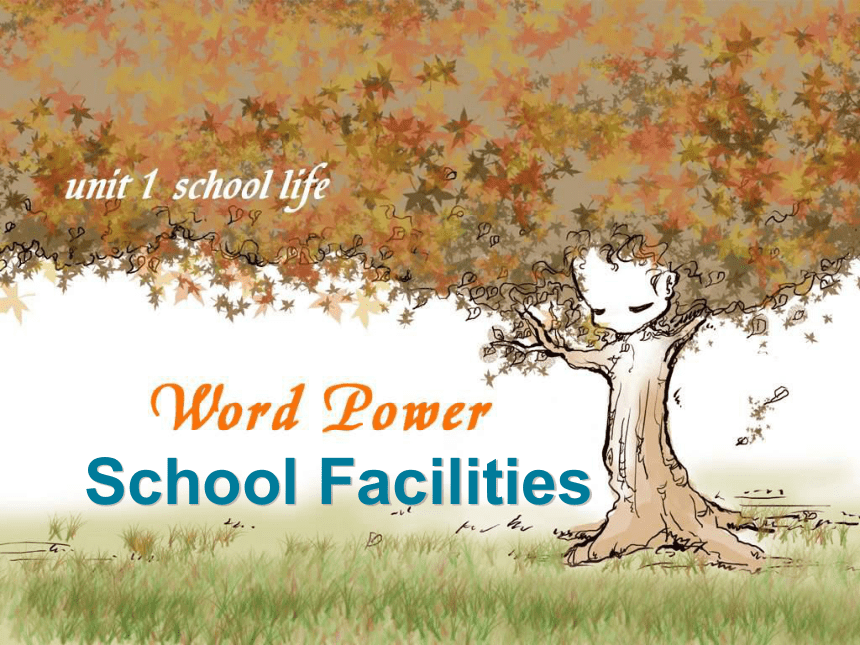 | |
| 格式 | zip | ||
| 文件大小 | 4.9MB | ||
| 资源类型 | 教案 | ||
| 版本资源 | 牛津译林版 | ||
| 科目 | 英语 | ||
| 更新时间 | 2018-08-18 21:29:06 | ||
图片预览

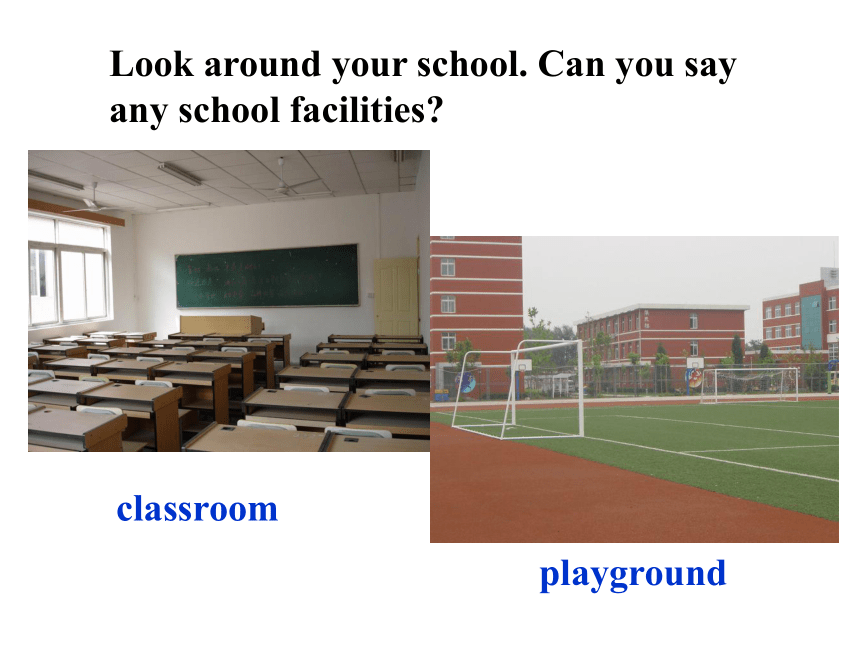
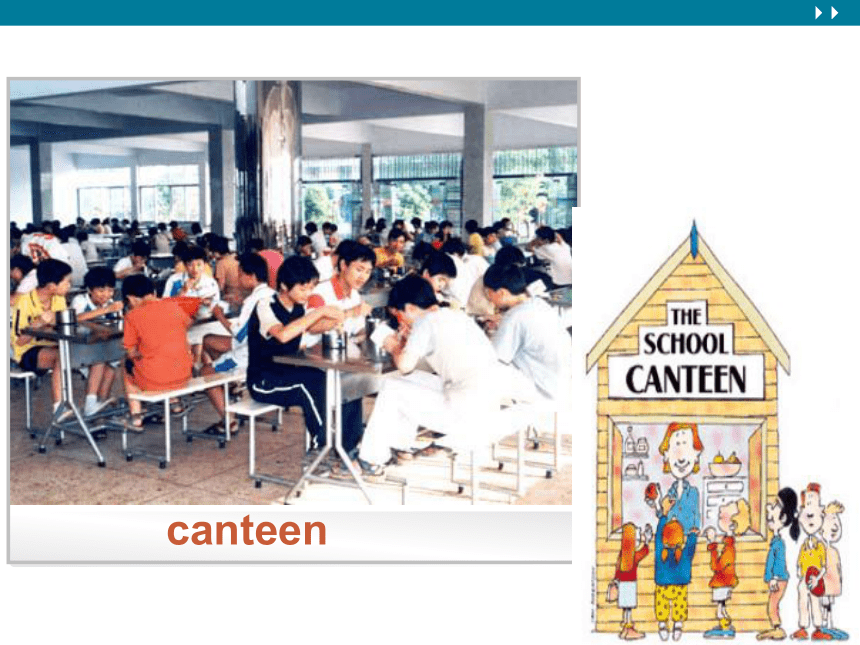
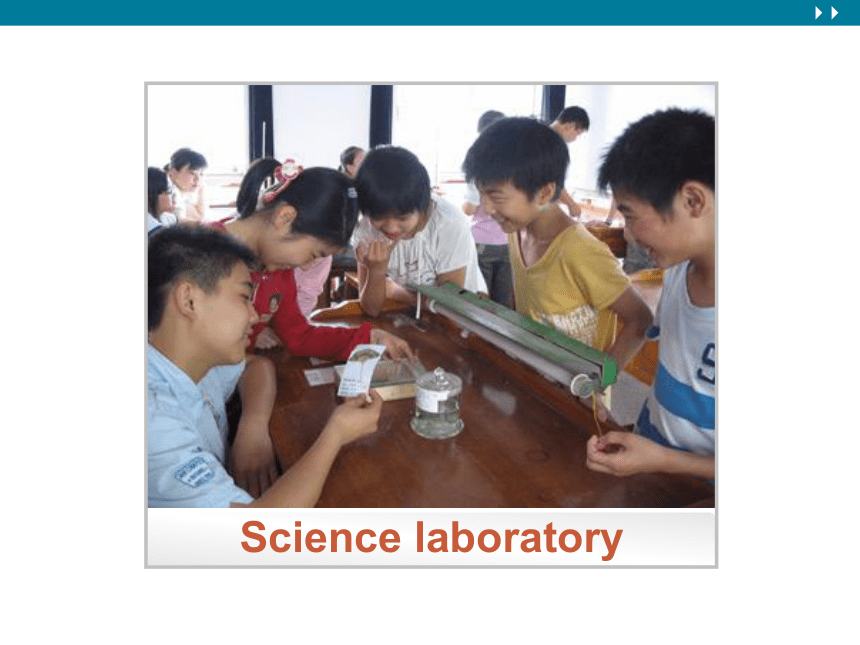
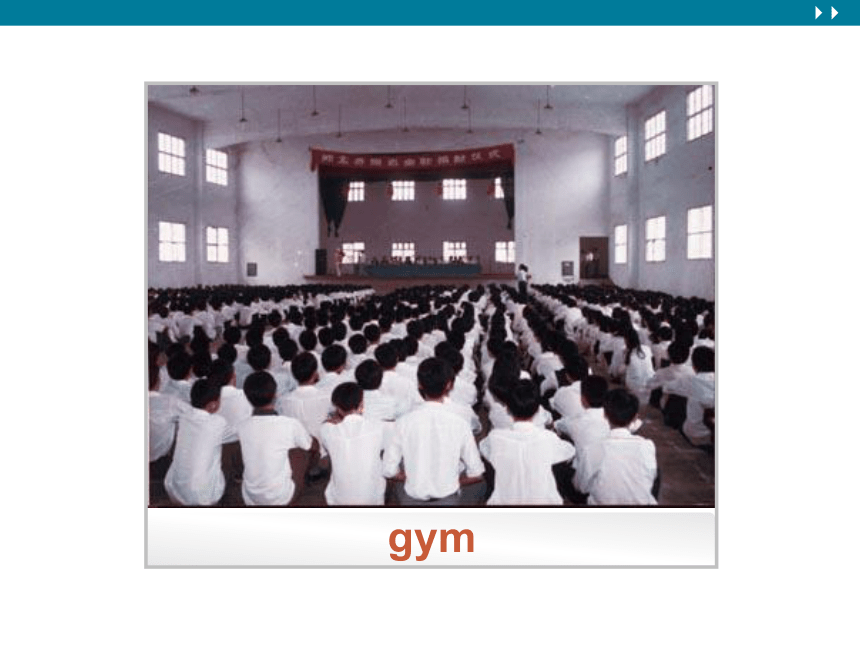
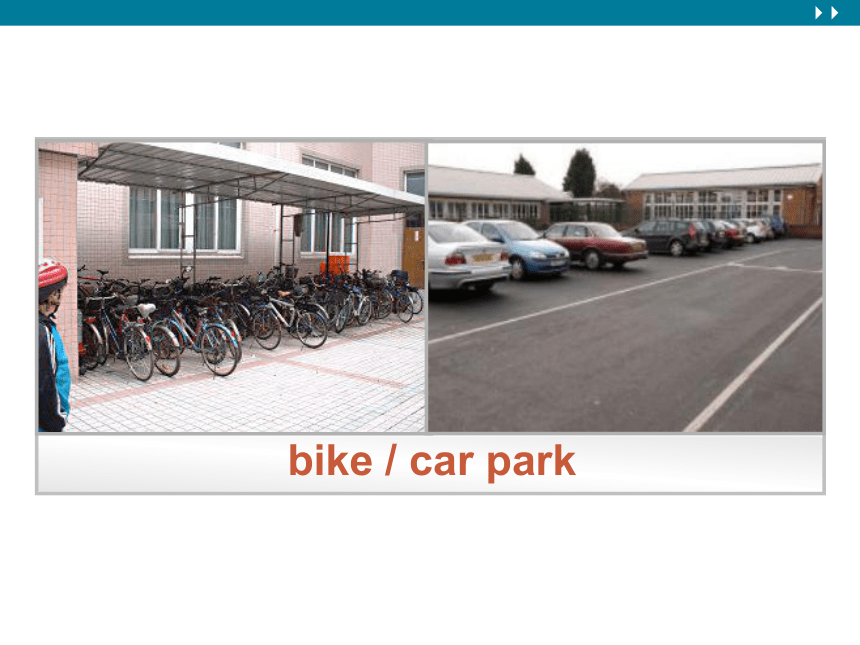
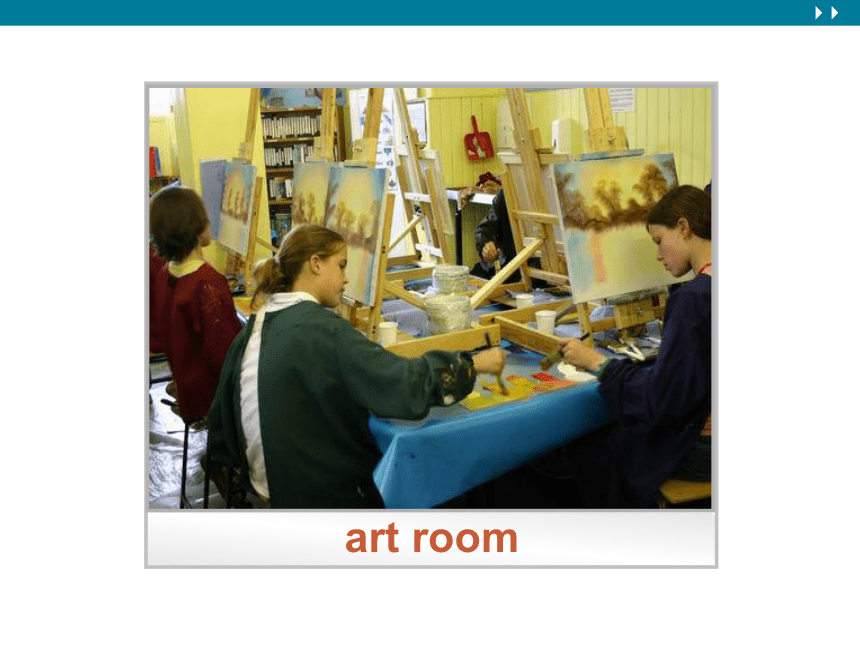


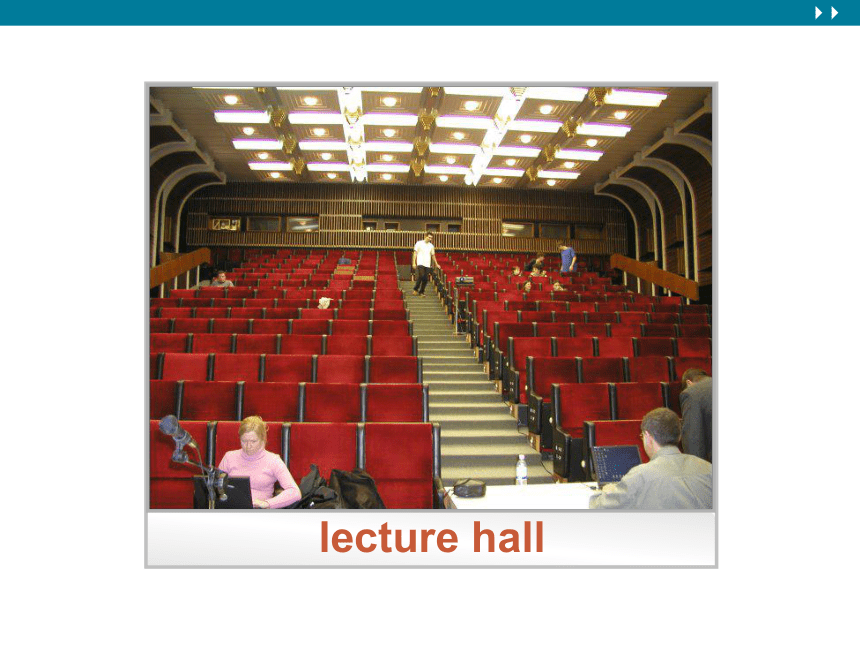
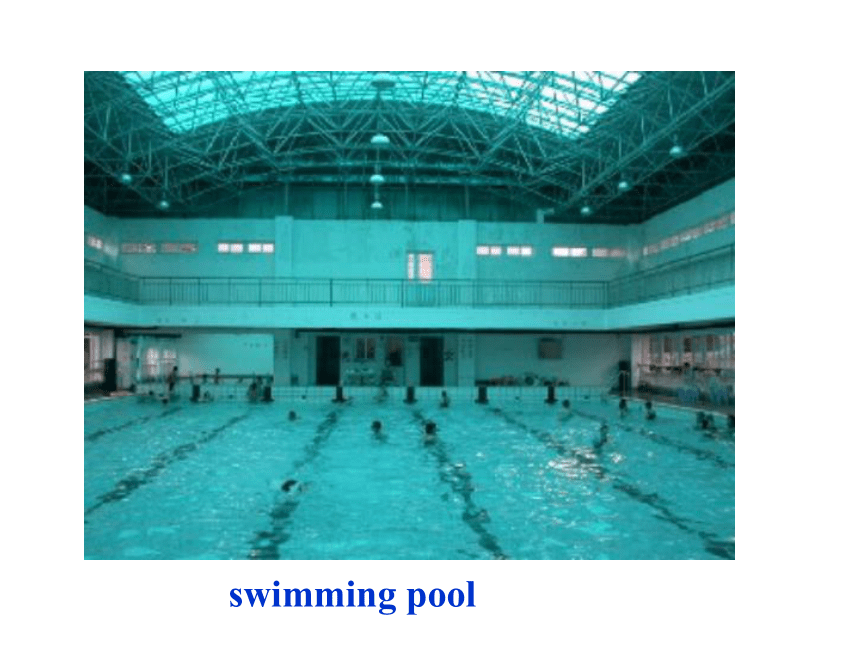
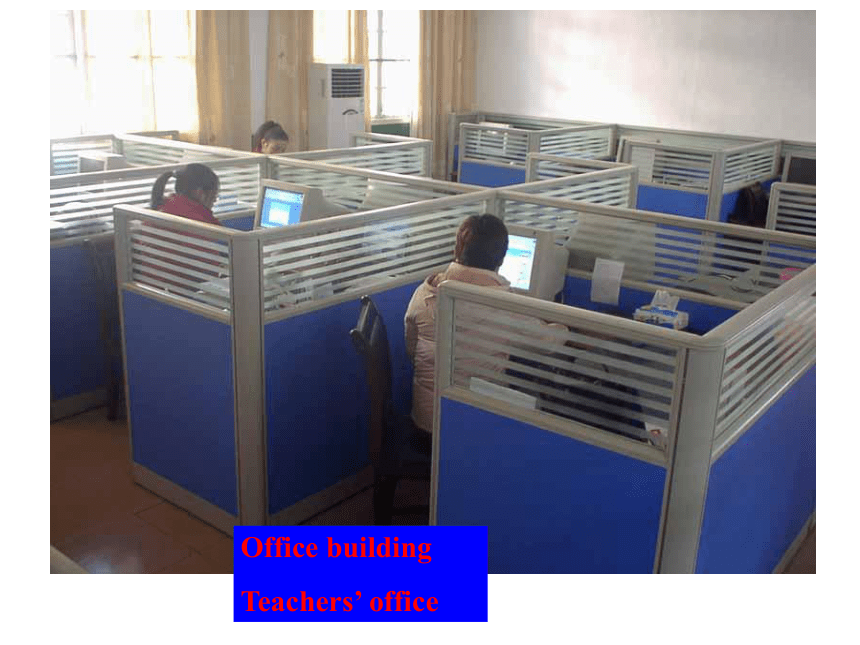
文档简介
课件286张PPT。School FacilitiesLook around your school. Can you say any school facilities?classroomplaygroundcanteenScience laboratorygymbike / car parkart roomdormitorymedical centerlecture hallswimming poolOffice building
Teachers’ officelibrarydormitory classroom gym
canteen swimming pool
car park medical centre
laboratory library Do you still remember the first day you came to this school? How did you find your way around?
Usually if you don’t know your way, what do you do? Do you ask others for help?Excuse me, can you tell me the way to …
Excuse me, can you tell me how to get
to …
Excuse me, how can I get to …
Excuse me, where is …
Excuse me, what is the quickest way to …How to ask the way:Excuse me, is this the way to …1.Go down/along/up this street…
2.Turn left/right.
3.Go straight (on) / go across/through
4.walk/go past/between / walk towards
5.Take the second turning on the left.
6. It’s the first turning on the right…
7.It’s across from / in front of / next to … How to show the way:8. It’s far from here. You can take NO. 6 bus.
9. It’s about 30 minutes’ drive.
10. It’s not far from here. It’s near here.
11.It’s only a few minutes’ walk from here.Wei Hua’s SchoolPracticeDo Part B with your partner. If you are standing at the door of the dormitories, first turn right and go past the medical centre and the gym, then turn right and walk until the end of the road. Classroom 4 is on your left.PracticeNow, would you please open your books
at Page 7. Please finish Part C by using
the words we learned just now.CMHS has much more than you expect. We
have a ________ for both our visitors and our
students who drive. We have over 50
__________ for different lessons, and a _____
with over 48,000 books. Twelve science
__________ are available for different
experiments. Whether students want to
exercise or just want some fun, they can use
our ____. Welcome to
Central Manchester High School (CMHS)car parkclassroomslibrarylaboratoriesgymThe indoor _____________ is open all year
round for students who like swimming.
Students who live far away from home will be
happy with our __________. Each room comes
with its own bathroom. We have a modern
____________ and experienced nurses. We
make sure that we take good care of students
on campus.Welcome to
Central Manchester High School (CMHS)swimming pooldormitoriesmedical centerSchool meals are delicious. Each day our
_______ serves three meals, and hamburgers
and soft drinks are also available during break
times.
We hope you will …
Welcome to
Central Manchester High School (CMHS)canteenready for use; capable of being gottenavailableThis kind of sweater is available in three colors.prepare, offer food;
place food before someoneserveEvery day our canteen serves three meals.It is the hostess that usually serves tea in
China. Brain-stormWhat kind of facilities can we see in
the gym?Brain-stormbeamringsmatBrain-stormdumb-bellBrain-stormbarbellbarbellclimbing
barsBrain-stormBasketball courtSkipping rope climbing bars 攀登架
2. rings 吊环
3. dumb-bell 哑铃
4. beam 平衡木
5. skipping rope 跳绳
6. basketball court 篮球场
7. barbell 杠铃
8. mat 垫子Homework1. Go over what we have learned this class.
2. Writing (part B) on page 93 of WB. Harry PotterHarry Pottera brave boyHarry Pottera brave boya boy with glassesHarry Pottera brave boya boy with glassesa boy who is brave
and wearing glassesHarry Pottera brave boya boy with glassesa boy who is brave
and wearing glassesHarry Pottera brave boya boy with glassesa boy who is brave
and wearing glassesHarry Pottera brave boya boy with glassesa boy who is brave
and wearing glassesHarry Pottera brave boya boy with glassesa boy who is brave
and wearing glassesattributeHe likes playing computer games. Discussion: What can be used as an attribute in an English sentence??
______________________________________________ and _____ can fun_ction as an attribute in an English sentence.An adjective, a prepositional phrase a noun an attributive clause What is the man?He is an astronaut. He is an astronaut. An astronaut is a person.He is an astronaut. An astronaut is a person.He works and travels in space.He is an astronaut. An astronaut is a person.He works and travels in space.An astronaut is a person. He
works and travels in space.He is an astronaut. An astronaut is a person.He works and travels in space.An astronaut is a person who
works and travels in space.Who is the man?He is an hero astronaut. He is an hero astronaut. His name is Yang Liwei.He is an hero astronaut. His name is Yang Liwei.He is a hero astronaut . His
name is Yang Liwei.He is an hero astronaut. His name is Yang Liwei.He is a hero astronaut whose
name is Yang Liwei.How did he come to space?He was sent into the sky by
a space craft.He was sent into the sky by
a space craft.Space craft is a vehicle.
(运载工具) He was sent into the sky by
a space craft.Space craft is a vehicle.
(运载工具) It can travel in space.He was sent into the sky by
a space craft.Space craft is a vehicle.
(运载工具) It can travel in space.Space craft is a vehicle
__________ can travel in space.He was sent into the sky by
a space craft.Space craft is a vehicle.
(运载工具) It can travel in space.Space craft is a vehicle
__________ can travel in space.that / whichWhen did he come to space?He came to space
on Oct. 15, 2003.He came to space
on Oct. 15, 2003.It was the day ______
he was sent into the sky.He came to space
on Oct. 15, 2003.It was the day ______
he was sent into the sky.when Where does he work and live in space?space capsuleHe works and lives
in a space capsule.space capsuleHe works and lives
in a space capsule.It is a place ______ an
astronaut works and lives. space capsuleHe works and lives
in a space capsule.It is a place ______ an
astronaut works and lives. wherespace capsule1. 定义:又称形容词性从句,在复合句中修饰名词或代
词,起定语作用。被定语从句修饰的名词或代词。Attributive Clause (定语从句)2. 先行词:relative words (关系词) : 引导定语从句的词which, that, who, whom, whose等在定语从句中作主语、宾语、定语和表语relative adverbs (关系副词)where, why, when在定语从句中作状语Attributive Clause (定语从句)relative pronouns (关系代词) usage of the relative pronouns
and the relative adverbs
关系代词和关系副词的使用Attributive Clause (定语从句)which / that 指物,Attributive Clause (定语从句)which / that 指物,在定语从句中做主语或宾语
(做宾语可省略)Attributive Clause (定语从句)Space craft is a vehicle (which / that can
travel in space).which / that 指物,在定语从句中做主语或宾语
(做宾语可省略)Attributive Clause (定语从句)Space craft is a vehicle (which / that can
travel in space).which / that 指物,在定语从句中做主语或宾语
(做宾语可省略)Attributive Clause (定语从句)Space craft is a vehicle (which / that can
travel in space).The space craft (that / which you see on TV)
is made in China.which / that 指物,在定语从句中做主语或宾语
(做宾语可省略)Attributive Clause (定语从句)Space craft is a vehicle (which / that can
travel in space).The space craft (that / which you see on TV)
is made in China.which / that 指物,在定语从句中做主语或宾语
(做宾语可省略)Attributive Clause (定语从句)Space craft is a vehicle (which / that can
travel in space).The space craft (that / which you see on TV)
is made in China.which / that 指物,在定语从句中做主语或宾语
(做宾语可省略)Attributive Clause (定语从句)who / that 指人,Attributive Clause (定语从句)who / that 指人,在定语从句中作主语或宾语
(作宾语可省略)Attributive Clause (定语从句)An astronaut is a person ( works
and travels in space).who / that 指人,在定语从句中作主语或宾语
(作宾语可省略)Attributive Clause (定语从句)An astronaut is a person (who / that works
and travels in space).who / that 指人,在定语从句中作主语或宾语
(作宾语可省略)Attributive Clause (定语从句)An astronaut is a person (who / that works
and travels in space).who / that 指人,在定语从句中作主语或宾语
(作宾语可省略)The astronaut (who / that Harry Potter met
in space) is Yang Liwei .Attributive Clause (定语从句)An astronaut is a person (who / that works
and travels in space).who / that 指人,在定语从句中作主语或宾语
(作宾语可省略)The astronaut (who / that Harry Potter met
in space) is Yang Liwei .Attributive Clause (定语从句)An astronaut is a person (who / that works
and travels in space).who / that 指人,在定语从句中作主语或宾语
(作宾语可省略)The astronaut (who / that Harry Potter met
in space) is Yang Liwei .Attributive Clause (定语从句)whom 指人,在定语从句中作宾语。Attributive Clause (定语从句)whom 指人,在定语从句中作宾语。
可省略,比who 作宾语更正式Attributive Clause (定语从句)The astronaut ( Harry Potter met in
space) is Yang Liwei .whom 指人,在定语从句中作宾语。
可省略,比who 作宾语更正式Attributive Clause (定语从句)The astronaut (whom Harry Potter met in
space) is Yang Liwei .whom 指人,在定语从句中作宾语。
可省略,比who 作宾语更正式Attributive Clause (定语从句)He is the character of the book. His name
is Harry Potter.Attributive Clause (定语从句)He is the character of the book. His name
is Harry Potter.He is the character of the book (whose
name is Harry Potter).Attributive Clause (定语从句)He is the character of the book. His name
is Harry Potter.He is the character of the book (whose
name is Harry Potter).Attributive Clause (定语从句)He is the character of the book. His name
is Harry Potter.He is the character of the book (whose
name is Harry Potter).I have read the book (whose character I
like very much).Attributive Clause (定语从句)He is the character of the book. His name
is Harry Potter.He is the character of the book (whose
name is Harry Potter).I have read the book (whose character I
like very much).Attributive Clause (定语从句)He is the character of the book. His name
is Harry Potter.whose 指人或物,作定语 (不可省略)He is the character of the book (whose
name is Harry Potter).I have read the book (whose character I
like very much).Attributive Clause (定语从句)where 指代的是表地点的先行词,在定语从句
中作地点状语。 Attributive Clause (定语从句)(1) This is the school _____________ I
visited yesterday.where 指代的是表地点的先行词,在定语从句
中作地点状语。 Attributive Clause (定语从句)(1) This is the school _____________ I
visited yesterday.where 指代的是表地点的先行词,在定语从句
中作地点状语。 I visited the school yesterday.Attributive Clause (定语从句)(1) This is the school _____________ I
visited yesterday.where 指代的是表地点的先行词,在定语从句
中作地点状语。 I visited the school yesterday.Attributive Clause (定语从句)which / that(2) This is the school _______ I worked
three years ago.where 指代的是表地点的先行词,在定语从句
中作地点状语。 Attributive Clause (定语从句)(2) This is the school _______ I worked
three years ago.where 指代的是表地点的先行词,在定语从句
中作地点状语。 I worked in the school three years ago.Attributive Clause (定语从句)(2) This is the school _______ I worked
three years ago.where 指代的是表地点的先行词,在定语从句
中作地点状语。 I worked in the school three years ago.Attributive Clause (定语从句)wherewhen 指代表示时间的先行词, 在定语从句中
作时间状语。Attributive Clause (定语从句)(1) I can’t forget the days _______ I stayed
with you last summer.when 指代表示时间的先行词, 在定语从句中
作时间状语。Attributive Clause (定语从句)(1) I can’t forget the days _______ I stayed
with you last summer.when 指代表示时间的先行词, 在定语从句中
作时间状语。I stayed with you on the days last summer.Attributive Clause (定语从句)(1) I can’t forget the days _______ I stayed
with you last summer.when 指代表示时间的先行词, 在定语从句中
作时间状语。I stayed with you on the days last summer.Attributive Clause (定语从句)whenwhen 指代表示时间的先行词, 在定语从句中
作时间状语。Attributive Clause (定语从句)(2) I still remember the days ____________
I spent on the exams.when 指代表示时间的先行词, 在定语从句中
作时间状语。Attributive Clause (定语从句)(2) I still remember the days ____________
I spent on the exams.when 指代表示时间的先行词, 在定语从句中
作时间状语。I spent the days on the exams.Attributive Clause (定语从句)(2) I still remember the days ____________
I spent on the exams.when 指代表示时间的先行词, 在定语从句中
作时间状语。I spent the days on the exams.Attributive Clause (定语从句)(which / that)Why 指代表原因的先行词,在定语从句中作
Attributive Clause (定语从句)Why 指代表原因的先行词,在定语从句中作
原因状语。Attributive Clause (定语从句)Is this the reason why (for which) he
refused our offer?Why 指代表原因的先行词,在定语从句中作
原因状语。Attributive Clause (定语从句)Is this the reason why (for which) he
refused our offer?Why 指代表原因的先行词,在定语从句中作
原因状语。这就是他拒绝我们帮助他的理由吗?Attributive Clause (定语从句)Is this the reason why (for which) he
refused our offer?Why 指代表原因的先行词,在定语从句中作
原因状语。这就是他拒绝我们帮助他的理由吗?Attributive Clause (定语从句)This is the reason __________ he gave us?Is this the reason why (for which) he
refused our offer?Why 指代表原因的先行词,在定语从句中作
原因状语。这就是他拒绝我们帮助他的理由吗?Attributive Clause (定语从句)which / thatThis is the reason __________ he gave us?Read the article on P. 9 and underline
the attributive clauses in it.Attributive Clause (定语从句)David Holmes studied at our school from 1990 to 1998. He has recently returned from his studies in China. David was one of the most helpful students that we ever had. In 1998, he went to Oxford University where he got interested in Chinese culture. After graduating from university, he went to China to study Chinese at Beijing Language and Culture University. Two years later, he was able to speak very good Chinese. Upon finishing his studies, David Holmes studied at our school from 1990 to 1998. He has recently returned from his studies in China. David was one of the most helpful students that we ever had. In 1998, he went to Oxford University where he got interested in Chinese culture. After graduating from university, he went to China to study Chinese at Beijing Language and Culture University. Two years later, he was able to speak very good Chinese. Upon finishing his studies, he started travelling in China. Some of the cities in China which he likes most are Beijing, Shanghai, Harbin and Nanjing. In China he developed an interest in teaching English to Chinese students. Most of the students that he taught have become his friends. When he returned to Britain two months ago, he brought back from China many interesting Books, dictionaries, paintings and photographs. He donated most of them to our school library. he started travelling in China. Some of the cities in China which he likes most are Beijing, Shanghai, Harbin and Nanjing. In China he developed an interest in teaching English to Chinese students. Most of the students that he taught have become his friends. When he returned to Britain two months ago, he brought back from China many interesting Books, dictionaries, paintings and photographs. He donated most of them to our school library. Some of the books were gifts that he got from his Chinese friends and students. The paintings that David donated to the school are being displayed in the assembly hall. Teachers and students at our school wish to thank David for his kindness. Next month we will have invited David to be one of our guest speakers. He will make a speech about his experiences in China. The speech is going to be at 3 p.m. on 9th October. At the end of his speech, there will be 30 minutes for questions and answers. So, if you are interested in knowing more about China, you mustn’t miss the chance to meet David at the open day.Complete the article with relative
pronouns on P.11.Attributive Clause (定语从句)“that” is usually used in the
following situations.Attributive Clause (定语从句)(1) 先行词为 everything, nothing, anything,
all, none, few, little, some 等不定代词时。Attributive Clause (定语从句)(1) 先行词为 everything, nothing, anything,
all, none, few, little, some 等不定代词时。I am sure she has nothing that you can
borrow.Attributive Clause (定语从句)(2) 先行词被 all, every, no, some, any, each,
much, few, little等修饰时。Attributive Clause (定语从句)I’ve read all the books that are about this
matter. (2) 先行词被 all, every, no, some, any, each,
much, few, little等修饰时。Attributive Clause (定语从句)I’ve read all the books that are about this
matter. (2) 先行词被 all, every, no, some, any, each,
much, few, little等修饰时。Attributive Clause (定语从句)I’ve read every book that is borrowed from
the library. (3) 先行词被序数词或形容词最高级修饰时。Attributive Clause (定语从句)This is the first book that he has read.(3) 先行词被序数词或形容词最高级修饰时。Attributive Clause (定语从句)This is the most interesting book that I
have ever read.(4) 先行词被 the only, the very, the same,
the last 修饰时。Attributive Clause (定语从句)This is the very book that belongs to him.(4) 先行词被 the only, the very, the same,
the last 修饰时。Attributive Clause (定语从句)The teacher who teaches us physics is the
man that is standing by the gate. (5) 如果有两个定语从句,其中一个关系代词
已用,则另一个用 that 。Attributive Clause (定语从句)Look at the man and his donkey that are
walking up the street.(6) 当先行词为人与动物或者人与物时:Attributive Clause (定语从句)Who is the man that is talking to you?(7)当句中已经有 who 这个词时,为避免重复:Attributive Clause (定语从句)When we use that instead of which? 1. Do you have anything that you want to say for yourself?
2. This is all that I want.
3. This is the most interesting film that I have ever seen.
4. This is the last train that goes to Suzhou. 5. This is the very book that I’m looking for.
6. The only thing that we can do is to give you some money.
7. Do you know the things and persons that they are talking about?1. He?is?the?only?one?of?the?students?who
?____ a?winner?of?scholarship?for?three?
years. (2002上海春)A.?is??? ??
B.?are?????
C.?have?been???
D.?has?been高考链接 1) The woman we met her this morning is our new teacher.
2) He lived in the house which door is red.
3) Did you find those pictures
were taken in Beijing?
4) He is the only student which can work out the problem. Correct the errors whosewhichthat 5) She moved to an old house her parents left it to her.
6) Do you know the girl who often help her classmates?
7) She likes the gifts whose friends gave her.
8) They talked about many things and persons who they remembered. thatwhichhelps--Understanding a program1. What is a program?
It is a plan of things to be done or things to be achieved.2. What does a program include?* date
* day
* time
* venue
* event/activity How to complete a school programme timetable?Date:
1st January
2nd February
3rd SeptemberAbbreviation
1st / 1 Jan
2nd / 2 Feb
3rd / 3 Sept A.E.:
9 a.m.
6.45 p.m.B.E.:
09.00
18.45 Day:Sun/Mon/Tue/Wed/Thur/Fri/Sat/Time: the place where events or
activities take placeVenue:e.g.: assembly hall 7th floor, Park Hotel Room 405, Building 12 the most important part of a programmeEvent/Activities:e.g.: speech on Chinese history art festival sports meeting21 Oct9.30 am22 Oct23 OctTueWed12.45 pm6.00 pmGuanghua High SchoolXiangming High SchoolAttend an important assemblyGo to the school concertListening I: complete the timetable As one of the monitors, complete the timetable of talks for next month.(P 13)Listening II:1. 1.20 p.m.
2. Room 503, Building 3
3. School life in the USA
4. Scientist
5. Room 306, Building 4
6. Famous football players
7. 10.10 a.m.
8. Australian pop songs Read the chart and email, compare, take notes and find out the book.
The title:
The price:
The year:
The writer:
The ISBN:7-8976-9374-8/kwith the word Dynastieshaving the figure 8after 2000a famous professor--comparing informationSkill-building 2ACompare the timetable on P13&15:Tips:
1. Read carefully and circle the classes you can skip.
2. Compare and write down the talks you can attend.The talks you can attend:1. Fire prevention
2. Outer space
3. School life in the USA
4. Fighting AIDS
5. Australian pop songsReporting school activitiesTaskSkills building 1:
understanding a programmeSkills building 1:
understanding a programmeA plan of activities to be done or
things to be achieved.Skills building 1:
understanding a programmeA plan of activities to be done or
things to be achieved.Skills building 1:
understanding a programmeA plan of activities to be done or
things to be achieved.dateSkills building 1:
understanding a programmeA plan of activities to be done or
things to be achieved.datedaySkills building 1:
understanding a programmeA plan of activities to be done or
things to be achieved.datedaytimeSkills building 1:
understanding a programmeA plan of activities to be done or
things to be achieved.datedaytimeplaceSkills building 1:
understanding a programmeA plan of activities to be done or
things to be achieved.datedaytimeplaceevent / activitySkills building 1:
understanding a programmedateSkills building 1:
understanding a programmedate1st January
3rd SeptemberSkills building 1:
understanding a programmedate1st January
3rd September1st / 1 Jan, Jan. 1Skills building 1:
understanding a programmedate1st January
3rd September1st / 1 Jan, Jan. 13rd / 3 Sept, Sept. 3Skills building 1:
understanding a programmedate1st January
3rd September1st / 1 Jan, Jan. 13rd / 3 Sept, Sept. 3onSkills building 1:
understanding a programmedate1st January
3rd September1st / 1 Jan, Jan. 13rd / 3 Sept, Sept. 3onJanuary
February
March
April
May
JuneJuly
August
September
October
November
DecemberSkills building 1:
understanding a programmedate1st January
3rd September1st / 1 Jan, Jan. 13rd / 3 Sept, Sept. 3onJanuary
February
March
April
May
JuneJan
Feb
Mar
Apr
May
JunJuly
August
September
October
November
DecemberSkills building 1:
understanding a programmedate1st January
3rd September1st / 1 Jan, Jan. 13rd / 3 Sept, Sept. 3onJanuary
February
March
April
May
JuneJan
Feb
Mar
Apr
May
JunJuly
August
September
October
November
DecemberJul
Aug
Sept
Oct
Nov
DecSkills building 1:
understanding a programmedaySkills building 1:
understanding a programmedayMonday
Tuesday
Wednesday
Thursday
Friday
Saturday
SundaySkills building 1:
understanding a programmedayMonday
Tuesday
Wednesday
Thursday
Friday
Saturday
SundayMon
Tue
Wed
Thur
Fri
Sat
SunSkills building 1:
understanding a programmedayMonday
Tuesday
Wednesday
Thursday
Friday
Saturday
SundayMon
Tue
Wed
Thur
Fri
Sat
Sunontimeplacetime9 a.m. / 09.00
4 p.m. / 16.00
8.50 a.m. / 08.50
6.45 p.m. / 18.45placetime9 a.m. / 09.00
4 p.m. / 16.00
8.50 a.m. / 08.50
6.45 p.m. / 18.45placeassembly hall
meeting room
7th Floor, park
Hotel…timeat9 a.m. / 09.00
4 p.m. / 16.00
8.50 a.m. / 08.50
6.45 p.m. / 18.45placeassembly hall
meeting room
7th Floor, park
Hotel…timeat9 a.m. / 09.00
4 p.m. / 16.00
8.50 a.m. / 08.50
6.45 p.m. / 18.45placeinassembly hall
meeting room
7th Floor, park
Hotel…atonSkills building 1:
understanding a programmeevent / activitySkills building 1:
understanding a programmeevent / activityspeech on Chinese
history
art festival
sports meeting…Skills building 1:
understanding a programmeListening on page 12Skills building 1:
understanding a programmeAnswers:1. A 2. B3. A 4. C5. AlisteningTalks for next monthStep 1: completing a timetable for a
school programmeStep 1: completing a timetable for a
school programmeListening on page 13Skills building 2:
comparing informationSkills building 2:
comparing informationRead all the information carefully. Skills building 2:
comparing informationRead all the information carefully. Make as many comparisons as possible.Skills building 2:
comparing informationRead all the information carefully. The title:
The price:
The year:
The writer:Make as many comparisons as possible.Skills building 2:
comparing informationRead all the information carefully. The title:
The price:
The year:
The writer:Make as many comparisons as possible.with the word ‘Dynasties’ Skills building 2:
comparing informationRead all the information carefully. The title:
The price:
The year:
The writer:Make as many comparisons as possible.with the word ‘Dynasties’ below 20 Skills building 2:
comparing informationRead all the information carefully. The title:
The price:
The year:
The writer:Make as many comparisons as possible.with the word ‘Dynasties’ below 20 written after 2007 Skills building 2:
comparing informationRead all the information carefully. The title:
The price:
The year:
The writer:Make as many comparisons as possible.with the word ‘Dynasties’ below 20 written after 2007 a famous professorSkills building 2:
comparing informationRead all the information carefully. The title:
The price:
The year:
The writer:Make as many comparisons as possible.with the word ‘Dynasties’ below 20 written after 2007 a famous professorAnswer: ‘The Rise of the Dynasties’Step 2: reporting to your class teacher Step 2: reporting to your class teacher Talks that we can attend: 1. _____________________
2. _____________________
3. Staying in good health
4. _____________________Step 2: reporting to your class teacher Talks that we can attend: 1. _____________________
2. _____________________
3. Staying in good health
4. _____________________School life in the USA Step 2: reporting to your class teacher Talks that we can attend: 1. _____________________
2. _____________________
3. Staying in good health
4. _____________________School life in the USA Fighting pollution Step 2: reporting to your class teacher Talks that we can attend: 1. _____________________
2. _____________________
3. Staying in good health
4. _____________________School life in the USA Fighting pollution Australian pop songs Skills building 3: writing a noticeSkills building 3: writing a noticeWhat is a notice?Where can you find a notice?When you write a notice, what
should you pay attention to?Reader noticeReader noticeEventTime: Reason:When to reopen: The new opening hours:Person that gives the notice:Reader noticeEventlibrary closedTime: Reason:When to reopen: The new opening hours:Person that gives the notice:Reader noticeEventlibrary closedTime: next Wednesday to Friday,
16th to 17th SeptemberReason:When to reopen: The new opening hours:Person that gives the notice:Reader noticeEventlibrary closedTime: next Wednesday to Friday,
16th to 17th SeptemberReason:for the sports meetingWhen to reopen: The new opening hours:Person that gives the notice:Reader noticeEventlibrary closedTime: next Wednesday to Friday,
16th to 17th SeptemberReason:for the sports meetingWhen to reopen: Next Saturday,
18th SeptemberThe new opening hours:Person that gives the notice:Reader noticeEventlibrary closedTime: next Wednesday to Friday,
16th to 17th SeptemberReason:for the sports meetingWhen to reopen: Next Saturday,
18th SeptemberThe new opening hours:Mondav -- Friday: 8 a.m. -- 6 p.m.
Saturday & Sunday: 10 a.m. -- 5 p.m.
Public holidays: closedPerson that gives the notice:Reader noticeEventlibrary closedTime: next Wednesday to Friday,
16th to 17th SeptemberReason:for the sports meetingWhen to reopen: Next Saturday,
18th SeptemberThe new opening hours:Mondav -- Friday: 8 a.m. -- 6 p.m.
Saturday & Sunday: 10 a.m. -- 5 p.m.
Public holidays: closedPerson that gives the notice: the school libraryStep 3: informing your classmates NoticeTalks in OctoberI am happy to inform you that in October
we are going to attend four interesting and
instructive talks. I think we will learn a lot
of information. Read the following to get
some detailed information about the five
talks.Step 3: informing your classmates Date DayTimeVenueSubjectSpeaker13th
Oct19th
OctWedTue3
a.m.9
a.m.Room 401,
Building 1Room 105,
Building 2School
life in
the USAUSA
StudentScientist Step 3: informing your classmates Fighting
pollutionDate DayTimeVenueSubjectSpeaker21st
Oct29th
OctThurFri2.30
a.m.10
a.m.Room 306,
Building 4Room 303,
Building 4Staying
in good
healthDoctorAustralian
singerStep 3: informing your classmates Australian
pop
songsLanguage pointscomparevt. & vi. 对比 对照;比作 比喻① compare A with B: 把A和B作比较Compare this one with that, and you’ll see
the difference.② compare A to B: 把A比作BChildren are often compared to flowers.compare注意:compared with 和 compared to 作为固
定状语时,表示“与…相比”,可以互换。Compared with / to many people, she was
indeed lucky.regretvt. 遗憾,抱歉,后悔
(后接名词,动名词,不定式,that从句)① regret doing sth. 后悔做了某事② regret to do sth. 对要做的事感到遗憾regretvt. 遗憾,抱歉,后悔
(后接名词,动名词,不定式,that从句)She failed in the driving test. I regret not
giving him any advice.I regret to say that I cannot help you.regretvt. 遗憾,抱歉,后悔
(后接名词,动名词,不定式,that从句)She failed in the driving test. I regret not
giving him any advice.她的驾考没过,我后悔没给她些建议。I regret to say that I cannot help you.regretvt. 遗憾,抱歉,后悔
(后接名词,动名词,不定式,that从句)She failed in the driving test. I regret not
giving him any advice.她的驾考没过,我后悔没给她些建议。I regret to say that I cannot help you.很抱歉,我不能帮你。regretregret n. U 可惜,遗憾,后悔
C 遗憾的事All of us have regrets in our lives.more thanOur club is much more than just
music. (P18)more thanOur club is much more than just
music. (P18)我们的俱乐部不仅仅只有音乐。more than和平不仅仅意味着没有战争。这是我不能告诉您的,先生。more than和平不仅仅意味着没有战争。这是我不能告诉您的,先生。Peace is much more than the
absence of war. more thanPeace is much more than the
absence of war. That’s more than I can tell you,
sir. 这是我不能告诉您的,先生。和平不仅仅意味着没有战争。more than寒冷是孩子们忍受不了的。more thanThe cold was more than the
children could bear.寒冷是孩子们忍受不了的。informinform vt.
通知或报告某人(某事);
告诉某人inform sb. of / about sth.
inform sb. + that 从句inform① Have you informed the police?
② He never informed us of the
event.inform① Have you informed the police?
② He never informed us of the
event.We were never informed of the
event.inform① Have you informed the police?
② He never informed us of the
event.We were never informed of the
event.③ He informed the police that some
money was missing.requireWhen I attended the first meeting,
I was required to write a poem and I
had to read it out to the group. (P18)requireWhen I attended the first meeting,
I was required to write a poem and I
had to read it out to the group. (P18)require vt. 需要,要求requireWhen I attended the first meeting,
I was required to write a poem and I
had to read it out to the group. (P18)⑴ require + n.
⑵ require + doing
⑶ require + sb. + to do
⑷ require + that…(从句中用 should +v.)require vt. 需要,要求require①他们需要我们的帮助。②这墙需要修。③全部会员均应出席会议。require①他们需要我们的帮助。They require our help.②这墙需要修。③全部会员均应出席会议。require①他们需要我们的帮助。They require our help.②这墙需要修。The wall requires repairing.③全部会员均应出席会议。require①他们需要我们的帮助。They require our help.②这墙需要修。The wall requires repairing.③全部会员均应出席会议。All the members are required to
attend the meeting.require④法院下令他缴付罚款。require④法院下令他缴付罚款。The court required that he (should)
pay the fine.1. The name of the club:
2. Who started the club? Kate Jones, the writer of this article.The radio clubInfo of the club3. When was the club started?
4. Why was the club started?Two years ago 1) CD players were not allowed in school. 2) To play music during break times.Every morning:
2) During exam time:
3) At the end of school year:The weather/news, messages. The things they should or shouldn't do for exams. Graduating Ss give messages to friends and teachers.What the radio club does Play songs by students and give messages to inform parents of events such as outings (远足,短途旅行) and school plays.4) When parents come:The name of the club:
Who started the club:
When the members(成员)of the club meet:
What the members of the club do:Poets of the Next GenerationMr. Owen, the English teacherThe last Friday of every month Talk about poems and poets they like, select poems, read them out loud, write
poems and read them outFOCUSES1. it is run by the students
run 管理,经营
run a paper plant
run 使运转;操作
run a machine.2. allow sb. to do sth/be allowed to do sth.
allow doing sth/ sth.
Students are not allowed to wear leisure clothes in the campus.
The office in the company doesn’t allow smoking.3. He approved the idea.
approve sth. 批准, 通过
The governor approved the new building plans.
approve of sb./sth. 赞同, 认可
None approves of killing time in this way. 4. Our club is much more than just music.
more than 不仅仅是
He is more than an average teacher. He is a psychologist.
We need more than money, nice food and nice clothing. We need parents’ care.5. require sb. to do sth
The rules require us all to be present.
sth. require (need/want) to be done
doing
Our plans require approving.6. consist of: v.由...组成
Our poster consists of pictures and words1. run a radio club
2. approve one’s project
3. make preparations for
4. be required to write a poem
5. be a little scary
6. design a poster
7. be responsible for the task
8. attract more viewers9. come up with a great idea
10. draft a plan
11. be based on your hard work
12. consist of different cultures
13. present your poster to the class
14. sign up
15. win the competitionPlanning If you want to start a school club, what club will you want to start?
Every group member should suggest one, then vote to decide which one to choose.
We would like to start______.Badminton(羽毛球)Newspaper Drama(戏剧)
Chess(象棋) Dance
Computer Music
Movie English
Foreign culture Football
Basketball Writing
Table tennis Guitar Volleyball 1) What does your club do?
2) How does your club help the members achieve their goals?
3) When and where do the members meet?Preparing1.What is your club like?(group work)Step 2 1) The name of your club
2) What does your club do?
3) How does your club help the members achieve their goals?
4) When and where do the members meet?Step 3Making a poster 1.What should your poster include (包括)? 2. How can you make your poster more attractive?1) Written in big or color letters.
2) Use pictures or photographs. 3. Make a posterSkills building 3 : write a notice1.What is a notice?2.What’s the important information?time, dates, events, person that issues it, etc.Or: When? Where? Who ? What ? etc.Read “ READER NOTICE”.
Try to underline the important information.P16Read a notice and find out :Event:Time:Reason:When to reopen:New opening hours:Person that gives the notice:Step 3: notifying your classmatesSee the notice on page 16Tips :Include all the important.Make sure it is clear and attractive.It can be written in big and color letters.Use one or two pictures or photos.Sample 1 (written):Notice
Talks in October I am happy to inform you that in October we are going to attend five interesting and informative talks.
Read the following to get some
detailed information about the five
talks.… Li HuaSample 2 (oral): Hi, everybody! May I have your
attention, please?
In October we are going to attend five interesting and informative talks.
Here they go: …
That’s all. Thank you.inform= tell , notifyHe informed me of your decision.inform sb. of / about sth.
—be informed of 听说; 接到...的通知校长告诉我们下星期学校将停一天课。The headmaster informed us that the school would be closed for one day next week.inform against / on / upon sb. 告发, 检举某人课后练习P90P91P92AP92B
Teachers’ officelibrarydormitory classroom gym
canteen swimming pool
car park medical centre
laboratory library Do you still remember the first day you came to this school? How did you find your way around?
Usually if you don’t know your way, what do you do? Do you ask others for help?Excuse me, can you tell me the way to …
Excuse me, can you tell me how to get
to …
Excuse me, how can I get to …
Excuse me, where is …
Excuse me, what is the quickest way to …How to ask the way:Excuse me, is this the way to …1.Go down/along/up this street…
2.Turn left/right.
3.Go straight (on) / go across/through
4.walk/go past/between / walk towards
5.Take the second turning on the left.
6. It’s the first turning on the right…
7.It’s across from / in front of / next to … How to show the way:8. It’s far from here. You can take NO. 6 bus.
9. It’s about 30 minutes’ drive.
10. It’s not far from here. It’s near here.
11.It’s only a few minutes’ walk from here.Wei Hua’s SchoolPracticeDo Part B with your partner. If you are standing at the door of the dormitories, first turn right and go past the medical centre and the gym, then turn right and walk until the end of the road. Classroom 4 is on your left.PracticeNow, would you please open your books
at Page 7. Please finish Part C by using
the words we learned just now.CMHS has much more than you expect. We
have a ________ for both our visitors and our
students who drive. We have over 50
__________ for different lessons, and a _____
with over 48,000 books. Twelve science
__________ are available for different
experiments. Whether students want to
exercise or just want some fun, they can use
our ____. Welcome to
Central Manchester High School (CMHS)car parkclassroomslibrarylaboratoriesgymThe indoor _____________ is open all year
round for students who like swimming.
Students who live far away from home will be
happy with our __________. Each room comes
with its own bathroom. We have a modern
____________ and experienced nurses. We
make sure that we take good care of students
on campus.Welcome to
Central Manchester High School (CMHS)swimming pooldormitoriesmedical centerSchool meals are delicious. Each day our
_______ serves three meals, and hamburgers
and soft drinks are also available during break
times.
We hope you will …
Welcome to
Central Manchester High School (CMHS)canteenready for use; capable of being gottenavailableThis kind of sweater is available in three colors.prepare, offer food;
place food before someoneserveEvery day our canteen serves three meals.It is the hostess that usually serves tea in
China. Brain-stormWhat kind of facilities can we see in
the gym?Brain-stormbeamringsmatBrain-stormdumb-bellBrain-stormbarbellbarbellclimbing
barsBrain-stormBasketball courtSkipping rope climbing bars 攀登架
2. rings 吊环
3. dumb-bell 哑铃
4. beam 平衡木
5. skipping rope 跳绳
6. basketball court 篮球场
7. barbell 杠铃
8. mat 垫子Homework1. Go over what we have learned this class.
2. Writing (part B) on page 93 of WB. Harry PotterHarry Pottera brave boyHarry Pottera brave boya boy with glassesHarry Pottera brave boya boy with glassesa boy who is brave
and wearing glassesHarry Pottera brave boya boy with glassesa boy who is brave
and wearing glassesHarry Pottera brave boya boy with glassesa boy who is brave
and wearing glassesHarry Pottera brave boya boy with glassesa boy who is brave
and wearing glassesHarry Pottera brave boya boy with glassesa boy who is brave
and wearing glassesattributeHe likes playing computer games. Discussion: What can be used as an attribute in an English sentence??
______________________________________________ and _____ can fun_ction as an attribute in an English sentence.An adjective, a prepositional phrase a noun an attributive clause What is the man?He is an astronaut. He is an astronaut. An astronaut is a person.He is an astronaut. An astronaut is a person.He works and travels in space.He is an astronaut. An astronaut is a person.He works and travels in space.An astronaut is a person. He
works and travels in space.He is an astronaut. An astronaut is a person.He works and travels in space.An astronaut is a person who
works and travels in space.Who is the man?He is an hero astronaut. He is an hero astronaut. His name is Yang Liwei.He is an hero astronaut. His name is Yang Liwei.He is a hero astronaut . His
name is Yang Liwei.He is an hero astronaut. His name is Yang Liwei.He is a hero astronaut whose
name is Yang Liwei.How did he come to space?He was sent into the sky by
a space craft.He was sent into the sky by
a space craft.Space craft is a vehicle.
(运载工具) He was sent into the sky by
a space craft.Space craft is a vehicle.
(运载工具) It can travel in space.He was sent into the sky by
a space craft.Space craft is a vehicle.
(运载工具) It can travel in space.Space craft is a vehicle
__________ can travel in space.He was sent into the sky by
a space craft.Space craft is a vehicle.
(运载工具) It can travel in space.Space craft is a vehicle
__________ can travel in space.that / whichWhen did he come to space?He came to space
on Oct. 15, 2003.He came to space
on Oct. 15, 2003.It was the day ______
he was sent into the sky.He came to space
on Oct. 15, 2003.It was the day ______
he was sent into the sky.when Where does he work and live in space?space capsuleHe works and lives
in a space capsule.space capsuleHe works and lives
in a space capsule.It is a place ______ an
astronaut works and lives. space capsuleHe works and lives
in a space capsule.It is a place ______ an
astronaut works and lives. wherespace capsule1. 定义:又称形容词性从句,在复合句中修饰名词或代
词,起定语作用。被定语从句修饰的名词或代词。Attributive Clause (定语从句)2. 先行词:relative words (关系词) : 引导定语从句的词which, that, who, whom, whose等在定语从句中作主语、宾语、定语和表语relative adverbs (关系副词)where, why, when在定语从句中作状语Attributive Clause (定语从句)relative pronouns (关系代词) usage of the relative pronouns
and the relative adverbs
关系代词和关系副词的使用Attributive Clause (定语从句)which / that 指物,Attributive Clause (定语从句)which / that 指物,在定语从句中做主语或宾语
(做宾语可省略)Attributive Clause (定语从句)Space craft is a vehicle (which / that can
travel in space).which / that 指物,在定语从句中做主语或宾语
(做宾语可省略)Attributive Clause (定语从句)Space craft is a vehicle (which / that can
travel in space).which / that 指物,在定语从句中做主语或宾语
(做宾语可省略)Attributive Clause (定语从句)Space craft is a vehicle (which / that can
travel in space).The space craft (that / which you see on TV)
is made in China.which / that 指物,在定语从句中做主语或宾语
(做宾语可省略)Attributive Clause (定语从句)Space craft is a vehicle (which / that can
travel in space).The space craft (that / which you see on TV)
is made in China.which / that 指物,在定语从句中做主语或宾语
(做宾语可省略)Attributive Clause (定语从句)Space craft is a vehicle (which / that can
travel in space).The space craft (that / which you see on TV)
is made in China.which / that 指物,在定语从句中做主语或宾语
(做宾语可省略)Attributive Clause (定语从句)who / that 指人,Attributive Clause (定语从句)who / that 指人,在定语从句中作主语或宾语
(作宾语可省略)Attributive Clause (定语从句)An astronaut is a person ( works
and travels in space).who / that 指人,在定语从句中作主语或宾语
(作宾语可省略)Attributive Clause (定语从句)An astronaut is a person (who / that works
and travels in space).who / that 指人,在定语从句中作主语或宾语
(作宾语可省略)Attributive Clause (定语从句)An astronaut is a person (who / that works
and travels in space).who / that 指人,在定语从句中作主语或宾语
(作宾语可省略)The astronaut (who / that Harry Potter met
in space) is Yang Liwei .Attributive Clause (定语从句)An astronaut is a person (who / that works
and travels in space).who / that 指人,在定语从句中作主语或宾语
(作宾语可省略)The astronaut (who / that Harry Potter met
in space) is Yang Liwei .Attributive Clause (定语从句)An astronaut is a person (who / that works
and travels in space).who / that 指人,在定语从句中作主语或宾语
(作宾语可省略)The astronaut (who / that Harry Potter met
in space) is Yang Liwei .Attributive Clause (定语从句)whom 指人,在定语从句中作宾语。Attributive Clause (定语从句)whom 指人,在定语从句中作宾语。
可省略,比who 作宾语更正式Attributive Clause (定语从句)The astronaut ( Harry Potter met in
space) is Yang Liwei .whom 指人,在定语从句中作宾语。
可省略,比who 作宾语更正式Attributive Clause (定语从句)The astronaut (whom Harry Potter met in
space) is Yang Liwei .whom 指人,在定语从句中作宾语。
可省略,比who 作宾语更正式Attributive Clause (定语从句)He is the character of the book. His name
is Harry Potter.Attributive Clause (定语从句)He is the character of the book. His name
is Harry Potter.He is the character of the book (whose
name is Harry Potter).Attributive Clause (定语从句)He is the character of the book. His name
is Harry Potter.He is the character of the book (whose
name is Harry Potter).Attributive Clause (定语从句)He is the character of the book. His name
is Harry Potter.He is the character of the book (whose
name is Harry Potter).I have read the book (whose character I
like very much).Attributive Clause (定语从句)He is the character of the book. His name
is Harry Potter.He is the character of the book (whose
name is Harry Potter).I have read the book (whose character I
like very much).Attributive Clause (定语从句)He is the character of the book. His name
is Harry Potter.whose 指人或物,作定语 (不可省略)He is the character of the book (whose
name is Harry Potter).I have read the book (whose character I
like very much).Attributive Clause (定语从句)where 指代的是表地点的先行词,在定语从句
中作地点状语。 Attributive Clause (定语从句)(1) This is the school _____________ I
visited yesterday.where 指代的是表地点的先行词,在定语从句
中作地点状语。 Attributive Clause (定语从句)(1) This is the school _____________ I
visited yesterday.where 指代的是表地点的先行词,在定语从句
中作地点状语。 I visited the school yesterday.Attributive Clause (定语从句)(1) This is the school _____________ I
visited yesterday.where 指代的是表地点的先行词,在定语从句
中作地点状语。 I visited the school yesterday.Attributive Clause (定语从句)which / that(2) This is the school _______ I worked
three years ago.where 指代的是表地点的先行词,在定语从句
中作地点状语。 Attributive Clause (定语从句)(2) This is the school _______ I worked
three years ago.where 指代的是表地点的先行词,在定语从句
中作地点状语。 I worked in the school three years ago.Attributive Clause (定语从句)(2) This is the school _______ I worked
three years ago.where 指代的是表地点的先行词,在定语从句
中作地点状语。 I worked in the school three years ago.Attributive Clause (定语从句)wherewhen 指代表示时间的先行词, 在定语从句中
作时间状语。Attributive Clause (定语从句)(1) I can’t forget the days _______ I stayed
with you last summer.when 指代表示时间的先行词, 在定语从句中
作时间状语。Attributive Clause (定语从句)(1) I can’t forget the days _______ I stayed
with you last summer.when 指代表示时间的先行词, 在定语从句中
作时间状语。I stayed with you on the days last summer.Attributive Clause (定语从句)(1) I can’t forget the days _______ I stayed
with you last summer.when 指代表示时间的先行词, 在定语从句中
作时间状语。I stayed with you on the days last summer.Attributive Clause (定语从句)whenwhen 指代表示时间的先行词, 在定语从句中
作时间状语。Attributive Clause (定语从句)(2) I still remember the days ____________
I spent on the exams.when 指代表示时间的先行词, 在定语从句中
作时间状语。Attributive Clause (定语从句)(2) I still remember the days ____________
I spent on the exams.when 指代表示时间的先行词, 在定语从句中
作时间状语。I spent the days on the exams.Attributive Clause (定语从句)(2) I still remember the days ____________
I spent on the exams.when 指代表示时间的先行词, 在定语从句中
作时间状语。I spent the days on the exams.Attributive Clause (定语从句)(which / that)Why 指代表原因的先行词,在定语从句中作
Attributive Clause (定语从句)Why 指代表原因的先行词,在定语从句中作
原因状语。Attributive Clause (定语从句)Is this the reason why (for which) he
refused our offer?Why 指代表原因的先行词,在定语从句中作
原因状语。Attributive Clause (定语从句)Is this the reason why (for which) he
refused our offer?Why 指代表原因的先行词,在定语从句中作
原因状语。这就是他拒绝我们帮助他的理由吗?Attributive Clause (定语从句)Is this the reason why (for which) he
refused our offer?Why 指代表原因的先行词,在定语从句中作
原因状语。这就是他拒绝我们帮助他的理由吗?Attributive Clause (定语从句)This is the reason __________ he gave us?Is this the reason why (for which) he
refused our offer?Why 指代表原因的先行词,在定语从句中作
原因状语。这就是他拒绝我们帮助他的理由吗?Attributive Clause (定语从句)which / thatThis is the reason __________ he gave us?Read the article on P. 9 and underline
the attributive clauses in it.Attributive Clause (定语从句)David Holmes studied at our school from 1990 to 1998. He has recently returned from his studies in China. David was one of the most helpful students that we ever had. In 1998, he went to Oxford University where he got interested in Chinese culture. After graduating from university, he went to China to study Chinese at Beijing Language and Culture University. Two years later, he was able to speak very good Chinese. Upon finishing his studies, David Holmes studied at our school from 1990 to 1998. He has recently returned from his studies in China. David was one of the most helpful students that we ever had. In 1998, he went to Oxford University where he got interested in Chinese culture. After graduating from university, he went to China to study Chinese at Beijing Language and Culture University. Two years later, he was able to speak very good Chinese. Upon finishing his studies, he started travelling in China. Some of the cities in China which he likes most are Beijing, Shanghai, Harbin and Nanjing. In China he developed an interest in teaching English to Chinese students. Most of the students that he taught have become his friends. When he returned to Britain two months ago, he brought back from China many interesting Books, dictionaries, paintings and photographs. He donated most of them to our school library. he started travelling in China. Some of the cities in China which he likes most are Beijing, Shanghai, Harbin and Nanjing. In China he developed an interest in teaching English to Chinese students. Most of the students that he taught have become his friends. When he returned to Britain two months ago, he brought back from China many interesting Books, dictionaries, paintings and photographs. He donated most of them to our school library. Some of the books were gifts that he got from his Chinese friends and students. The paintings that David donated to the school are being displayed in the assembly hall. Teachers and students at our school wish to thank David for his kindness. Next month we will have invited David to be one of our guest speakers. He will make a speech about his experiences in China. The speech is going to be at 3 p.m. on 9th October. At the end of his speech, there will be 30 minutes for questions and answers. So, if you are interested in knowing more about China, you mustn’t miss the chance to meet David at the open day.Complete the article with relative
pronouns on P.11.Attributive Clause (定语从句)“that” is usually used in the
following situations.Attributive Clause (定语从句)(1) 先行词为 everything, nothing, anything,
all, none, few, little, some 等不定代词时。Attributive Clause (定语从句)(1) 先行词为 everything, nothing, anything,
all, none, few, little, some 等不定代词时。I am sure she has nothing that you can
borrow.Attributive Clause (定语从句)(2) 先行词被 all, every, no, some, any, each,
much, few, little等修饰时。Attributive Clause (定语从句)I’ve read all the books that are about this
matter. (2) 先行词被 all, every, no, some, any, each,
much, few, little等修饰时。Attributive Clause (定语从句)I’ve read all the books that are about this
matter. (2) 先行词被 all, every, no, some, any, each,
much, few, little等修饰时。Attributive Clause (定语从句)I’ve read every book that is borrowed from
the library. (3) 先行词被序数词或形容词最高级修饰时。Attributive Clause (定语从句)This is the first book that he has read.(3) 先行词被序数词或形容词最高级修饰时。Attributive Clause (定语从句)This is the most interesting book that I
have ever read.(4) 先行词被 the only, the very, the same,
the last 修饰时。Attributive Clause (定语从句)This is the very book that belongs to him.(4) 先行词被 the only, the very, the same,
the last 修饰时。Attributive Clause (定语从句)The teacher who teaches us physics is the
man that is standing by the gate. (5) 如果有两个定语从句,其中一个关系代词
已用,则另一个用 that 。Attributive Clause (定语从句)Look at the man and his donkey that are
walking up the street.(6) 当先行词为人与动物或者人与物时:Attributive Clause (定语从句)Who is the man that is talking to you?(7)当句中已经有 who 这个词时,为避免重复:Attributive Clause (定语从句)When we use that instead of which? 1. Do you have anything that you want to say for yourself?
2. This is all that I want.
3. This is the most interesting film that I have ever seen.
4. This is the last train that goes to Suzhou. 5. This is the very book that I’m looking for.
6. The only thing that we can do is to give you some money.
7. Do you know the things and persons that they are talking about?1. He?is?the?only?one?of?the?students?who
?____ a?winner?of?scholarship?for?three?
years. (2002上海春)A.?is??? ??
B.?are?????
C.?have?been???
D.?has?been高考链接 1) The woman we met her this morning is our new teacher.
2) He lived in the house which door is red.
3) Did you find those pictures
were taken in Beijing?
4) He is the only student which can work out the problem. Correct the errors whosewhichthat 5) She moved to an old house her parents left it to her.
6) Do you know the girl who often help her classmates?
7) She likes the gifts whose friends gave her.
8) They talked about many things and persons who they remembered. thatwhichhelps--Understanding a program1. What is a program?
It is a plan of things to be done or things to be achieved.2. What does a program include?* date
* day
* time
* venue
* event/activity How to complete a school programme timetable?Date:
1st January
2nd February
3rd SeptemberAbbreviation
1st / 1 Jan
2nd / 2 Feb
3rd / 3 Sept A.E.:
9 a.m.
6.45 p.m.B.E.:
09.00
18.45 Day:Sun/Mon/Tue/Wed/Thur/Fri/Sat/Time: the place where events or
activities take placeVenue:e.g.: assembly hall 7th floor, Park Hotel Room 405, Building 12 the most important part of a programmeEvent/Activities:e.g.: speech on Chinese history art festival sports meeting21 Oct9.30 am22 Oct23 OctTueWed12.45 pm6.00 pmGuanghua High SchoolXiangming High SchoolAttend an important assemblyGo to the school concertListening I: complete the timetable As one of the monitors, complete the timetable of talks for next month.(P 13)Listening II:1. 1.20 p.m.
2. Room 503, Building 3
3. School life in the USA
4. Scientist
5. Room 306, Building 4
6. Famous football players
7. 10.10 a.m.
8. Australian pop songs Read the chart and email, compare, take notes and find out the book.
The title:
The price:
The year:
The writer:
The ISBN:7-8976-9374-8/kwith the word Dynastieshaving the figure 8after 2000a famous professor--comparing informationSkill-building 2ACompare the timetable on P13&15:Tips:
1. Read carefully and circle the classes you can skip.
2. Compare and write down the talks you can attend.The talks you can attend:1. Fire prevention
2. Outer space
3. School life in the USA
4. Fighting AIDS
5. Australian pop songsReporting school activitiesTaskSkills building 1:
understanding a programmeSkills building 1:
understanding a programmeA plan of activities to be done or
things to be achieved.Skills building 1:
understanding a programmeA plan of activities to be done or
things to be achieved.Skills building 1:
understanding a programmeA plan of activities to be done or
things to be achieved.dateSkills building 1:
understanding a programmeA plan of activities to be done or
things to be achieved.datedaySkills building 1:
understanding a programmeA plan of activities to be done or
things to be achieved.datedaytimeSkills building 1:
understanding a programmeA plan of activities to be done or
things to be achieved.datedaytimeplaceSkills building 1:
understanding a programmeA plan of activities to be done or
things to be achieved.datedaytimeplaceevent / activitySkills building 1:
understanding a programmedateSkills building 1:
understanding a programmedate1st January
3rd SeptemberSkills building 1:
understanding a programmedate1st January
3rd September1st / 1 Jan, Jan. 1Skills building 1:
understanding a programmedate1st January
3rd September1st / 1 Jan, Jan. 13rd / 3 Sept, Sept. 3Skills building 1:
understanding a programmedate1st January
3rd September1st / 1 Jan, Jan. 13rd / 3 Sept, Sept. 3onSkills building 1:
understanding a programmedate1st January
3rd September1st / 1 Jan, Jan. 13rd / 3 Sept, Sept. 3onJanuary
February
March
April
May
JuneJuly
August
September
October
November
DecemberSkills building 1:
understanding a programmedate1st January
3rd September1st / 1 Jan, Jan. 13rd / 3 Sept, Sept. 3onJanuary
February
March
April
May
JuneJan
Feb
Mar
Apr
May
JunJuly
August
September
October
November
DecemberSkills building 1:
understanding a programmedate1st January
3rd September1st / 1 Jan, Jan. 13rd / 3 Sept, Sept. 3onJanuary
February
March
April
May
JuneJan
Feb
Mar
Apr
May
JunJuly
August
September
October
November
DecemberJul
Aug
Sept
Oct
Nov
DecSkills building 1:
understanding a programmedaySkills building 1:
understanding a programmedayMonday
Tuesday
Wednesday
Thursday
Friday
Saturday
SundaySkills building 1:
understanding a programmedayMonday
Tuesday
Wednesday
Thursday
Friday
Saturday
SundayMon
Tue
Wed
Thur
Fri
Sat
SunSkills building 1:
understanding a programmedayMonday
Tuesday
Wednesday
Thursday
Friday
Saturday
SundayMon
Tue
Wed
Thur
Fri
Sat
Sunontimeplacetime9 a.m. / 09.00
4 p.m. / 16.00
8.50 a.m. / 08.50
6.45 p.m. / 18.45placetime9 a.m. / 09.00
4 p.m. / 16.00
8.50 a.m. / 08.50
6.45 p.m. / 18.45placeassembly hall
meeting room
7th Floor, park
Hotel…timeat9 a.m. / 09.00
4 p.m. / 16.00
8.50 a.m. / 08.50
6.45 p.m. / 18.45placeassembly hall
meeting room
7th Floor, park
Hotel…timeat9 a.m. / 09.00
4 p.m. / 16.00
8.50 a.m. / 08.50
6.45 p.m. / 18.45placeinassembly hall
meeting room
7th Floor, park
Hotel…atonSkills building 1:
understanding a programmeevent / activitySkills building 1:
understanding a programmeevent / activityspeech on Chinese
history
art festival
sports meeting…Skills building 1:
understanding a programmeListening on page 12Skills building 1:
understanding a programmeAnswers:1. A 2. B3. A 4. C5. AlisteningTalks for next monthStep 1: completing a timetable for a
school programmeStep 1: completing a timetable for a
school programmeListening on page 13Skills building 2:
comparing informationSkills building 2:
comparing informationRead all the information carefully. Skills building 2:
comparing informationRead all the information carefully. Make as many comparisons as possible.Skills building 2:
comparing informationRead all the information carefully. The title:
The price:
The year:
The writer:Make as many comparisons as possible.Skills building 2:
comparing informationRead all the information carefully. The title:
The price:
The year:
The writer:Make as many comparisons as possible.with the word ‘Dynasties’ Skills building 2:
comparing informationRead all the information carefully. The title:
The price:
The year:
The writer:Make as many comparisons as possible.with the word ‘Dynasties’ below 20 Skills building 2:
comparing informationRead all the information carefully. The title:
The price:
The year:
The writer:Make as many comparisons as possible.with the word ‘Dynasties’ below 20 written after 2007 Skills building 2:
comparing informationRead all the information carefully. The title:
The price:
The year:
The writer:Make as many comparisons as possible.with the word ‘Dynasties’ below 20 written after 2007 a famous professorSkills building 2:
comparing informationRead all the information carefully. The title:
The price:
The year:
The writer:Make as many comparisons as possible.with the word ‘Dynasties’ below 20 written after 2007 a famous professorAnswer: ‘The Rise of the Dynasties’Step 2: reporting to your class teacher Step 2: reporting to your class teacher Talks that we can attend: 1. _____________________
2. _____________________
3. Staying in good health
4. _____________________Step 2: reporting to your class teacher Talks that we can attend: 1. _____________________
2. _____________________
3. Staying in good health
4. _____________________School life in the USA Step 2: reporting to your class teacher Talks that we can attend: 1. _____________________
2. _____________________
3. Staying in good health
4. _____________________School life in the USA Fighting pollution Step 2: reporting to your class teacher Talks that we can attend: 1. _____________________
2. _____________________
3. Staying in good health
4. _____________________School life in the USA Fighting pollution Australian pop songs Skills building 3: writing a noticeSkills building 3: writing a noticeWhat is a notice?Where can you find a notice?When you write a notice, what
should you pay attention to?Reader noticeReader noticeEventTime: Reason:When to reopen: The new opening hours:Person that gives the notice:Reader noticeEventlibrary closedTime: Reason:When to reopen: The new opening hours:Person that gives the notice:Reader noticeEventlibrary closedTime: next Wednesday to Friday,
16th to 17th SeptemberReason:When to reopen: The new opening hours:Person that gives the notice:Reader noticeEventlibrary closedTime: next Wednesday to Friday,
16th to 17th SeptemberReason:for the sports meetingWhen to reopen: The new opening hours:Person that gives the notice:Reader noticeEventlibrary closedTime: next Wednesday to Friday,
16th to 17th SeptemberReason:for the sports meetingWhen to reopen: Next Saturday,
18th SeptemberThe new opening hours:Person that gives the notice:Reader noticeEventlibrary closedTime: next Wednesday to Friday,
16th to 17th SeptemberReason:for the sports meetingWhen to reopen: Next Saturday,
18th SeptemberThe new opening hours:Mondav -- Friday: 8 a.m. -- 6 p.m.
Saturday & Sunday: 10 a.m. -- 5 p.m.
Public holidays: closedPerson that gives the notice:Reader noticeEventlibrary closedTime: next Wednesday to Friday,
16th to 17th SeptemberReason:for the sports meetingWhen to reopen: Next Saturday,
18th SeptemberThe new opening hours:Mondav -- Friday: 8 a.m. -- 6 p.m.
Saturday & Sunday: 10 a.m. -- 5 p.m.
Public holidays: closedPerson that gives the notice: the school libraryStep 3: informing your classmates NoticeTalks in OctoberI am happy to inform you that in October
we are going to attend four interesting and
instructive talks. I think we will learn a lot
of information. Read the following to get
some detailed information about the five
talks.Step 3: informing your classmates Date DayTimeVenueSubjectSpeaker13th
Oct19th
OctWedTue3
a.m.9
a.m.Room 401,
Building 1Room 105,
Building 2School
life in
the USAUSA
StudentScientist Step 3: informing your classmates Fighting
pollutionDate DayTimeVenueSubjectSpeaker21st
Oct29th
OctThurFri2.30
a.m.10
a.m.Room 306,
Building 4Room 303,
Building 4Staying
in good
healthDoctorAustralian
singerStep 3: informing your classmates Australian
pop
songsLanguage pointscomparevt. & vi. 对比 对照;比作 比喻① compare A with B: 把A和B作比较Compare this one with that, and you’ll see
the difference.② compare A to B: 把A比作BChildren are often compared to flowers.compare注意:compared with 和 compared to 作为固
定状语时,表示“与…相比”,可以互换。Compared with / to many people, she was
indeed lucky.regretvt. 遗憾,抱歉,后悔
(后接名词,动名词,不定式,that从句)① regret doing sth. 后悔做了某事② regret to do sth. 对要做的事感到遗憾regretvt. 遗憾,抱歉,后悔
(后接名词,动名词,不定式,that从句)She failed in the driving test. I regret not
giving him any advice.I regret to say that I cannot help you.regretvt. 遗憾,抱歉,后悔
(后接名词,动名词,不定式,that从句)She failed in the driving test. I regret not
giving him any advice.她的驾考没过,我后悔没给她些建议。I regret to say that I cannot help you.regretvt. 遗憾,抱歉,后悔
(后接名词,动名词,不定式,that从句)She failed in the driving test. I regret not
giving him any advice.她的驾考没过,我后悔没给她些建议。I regret to say that I cannot help you.很抱歉,我不能帮你。regretregret n. U 可惜,遗憾,后悔
C 遗憾的事All of us have regrets in our lives.more thanOur club is much more than just
music. (P18)more thanOur club is much more than just
music. (P18)我们的俱乐部不仅仅只有音乐。more than和平不仅仅意味着没有战争。这是我不能告诉您的,先生。more than和平不仅仅意味着没有战争。这是我不能告诉您的,先生。Peace is much more than the
absence of war. more thanPeace is much more than the
absence of war. That’s more than I can tell you,
sir. 这是我不能告诉您的,先生。和平不仅仅意味着没有战争。more than寒冷是孩子们忍受不了的。more thanThe cold was more than the
children could bear.寒冷是孩子们忍受不了的。informinform vt.
通知或报告某人(某事);
告诉某人inform sb. of / about sth.
inform sb. + that 从句inform① Have you informed the police?
② He never informed us of the
event.inform① Have you informed the police?
② He never informed us of the
event.We were never informed of the
event.inform① Have you informed the police?
② He never informed us of the
event.We were never informed of the
event.③ He informed the police that some
money was missing.requireWhen I attended the first meeting,
I was required to write a poem and I
had to read it out to the group. (P18)requireWhen I attended the first meeting,
I was required to write a poem and I
had to read it out to the group. (P18)require vt. 需要,要求requireWhen I attended the first meeting,
I was required to write a poem and I
had to read it out to the group. (P18)⑴ require + n.
⑵ require + doing
⑶ require + sb. + to do
⑷ require + that…(从句中用 should +v.)require vt. 需要,要求require①他们需要我们的帮助。②这墙需要修。③全部会员均应出席会议。require①他们需要我们的帮助。They require our help.②这墙需要修。③全部会员均应出席会议。require①他们需要我们的帮助。They require our help.②这墙需要修。The wall requires repairing.③全部会员均应出席会议。require①他们需要我们的帮助。They require our help.②这墙需要修。The wall requires repairing.③全部会员均应出席会议。All the members are required to
attend the meeting.require④法院下令他缴付罚款。require④法院下令他缴付罚款。The court required that he (should)
pay the fine.1. The name of the club:
2. Who started the club? Kate Jones, the writer of this article.The radio clubInfo of the club3. When was the club started?
4. Why was the club started?Two years ago 1) CD players were not allowed in school. 2) To play music during break times.Every morning:
2) During exam time:
3) At the end of school year:The weather/news, messages. The things they should or shouldn't do for exams. Graduating Ss give messages to friends and teachers.What the radio club does Play songs by students and give messages to inform parents of events such as outings (远足,短途旅行) and school plays.4) When parents come:The name of the club:
Who started the club:
When the members(成员)of the club meet:
What the members of the club do:Poets of the Next GenerationMr. Owen, the English teacherThe last Friday of every month Talk about poems and poets they like, select poems, read them out loud, write
poems and read them outFOCUSES1. it is run by the students
run 管理,经营
run a paper plant
run 使运转;操作
run a machine.2. allow sb. to do sth/be allowed to do sth.
allow doing sth/ sth.
Students are not allowed to wear leisure clothes in the campus.
The office in the company doesn’t allow smoking.3. He approved the idea.
approve sth. 批准, 通过
The governor approved the new building plans.
approve of sb./sth. 赞同, 认可
None approves of killing time in this way. 4. Our club is much more than just music.
more than 不仅仅是
He is more than an average teacher. He is a psychologist.
We need more than money, nice food and nice clothing. We need parents’ care.5. require sb. to do sth
The rules require us all to be present.
sth. require (need/want) to be done
doing
Our plans require approving.6. consist of: v.由...组成
Our poster consists of pictures and words1. run a radio club
2. approve one’s project
3. make preparations for
4. be required to write a poem
5. be a little scary
6. design a poster
7. be responsible for the task
8. attract more viewers9. come up with a great idea
10. draft a plan
11. be based on your hard work
12. consist of different cultures
13. present your poster to the class
14. sign up
15. win the competitionPlanning If you want to start a school club, what club will you want to start?
Every group member should suggest one, then vote to decide which one to choose.
We would like to start______.Badminton(羽毛球)Newspaper Drama(戏剧)
Chess(象棋) Dance
Computer Music
Movie English
Foreign culture Football
Basketball Writing
Table tennis Guitar Volleyball 1) What does your club do?
2) How does your club help the members achieve their goals?
3) When and where do the members meet?Preparing1.What is your club like?(group work)Step 2 1) The name of your club
2) What does your club do?
3) How does your club help the members achieve their goals?
4) When and where do the members meet?Step 3Making a poster 1.What should your poster include (包括)? 2. How can you make your poster more attractive?1) Written in big or color letters.
2) Use pictures or photographs. 3. Make a posterSkills building 3 : write a notice1.What is a notice?2.What’s the important information?time, dates, events, person that issues it, etc.Or: When? Where? Who ? What ? etc.Read “ READER NOTICE”.
Try to underline the important information.P16Read a notice and find out :Event:Time:Reason:When to reopen:New opening hours:Person that gives the notice:Step 3: notifying your classmatesSee the notice on page 16Tips :Include all the important.Make sure it is clear and attractive.It can be written in big and color letters.Use one or two pictures or photos.Sample 1 (written):Notice
Talks in October I am happy to inform you that in October we are going to attend five interesting and informative talks.
Read the following to get some
detailed information about the five
talks.… Li HuaSample 2 (oral): Hi, everybody! May I have your
attention, please?
In October we are going to attend five interesting and informative talks.
Here they go: …
That’s all. Thank you.inform= tell , notifyHe informed me of your decision.inform sb. of / about sth.
—be informed of 听说; 接到...的通知校长告诉我们下星期学校将停一天课。The headmaster informed us that the school would be closed for one day next week.inform against / on / upon sb. 告发, 检举某人课后练习P90P91P92AP92B
